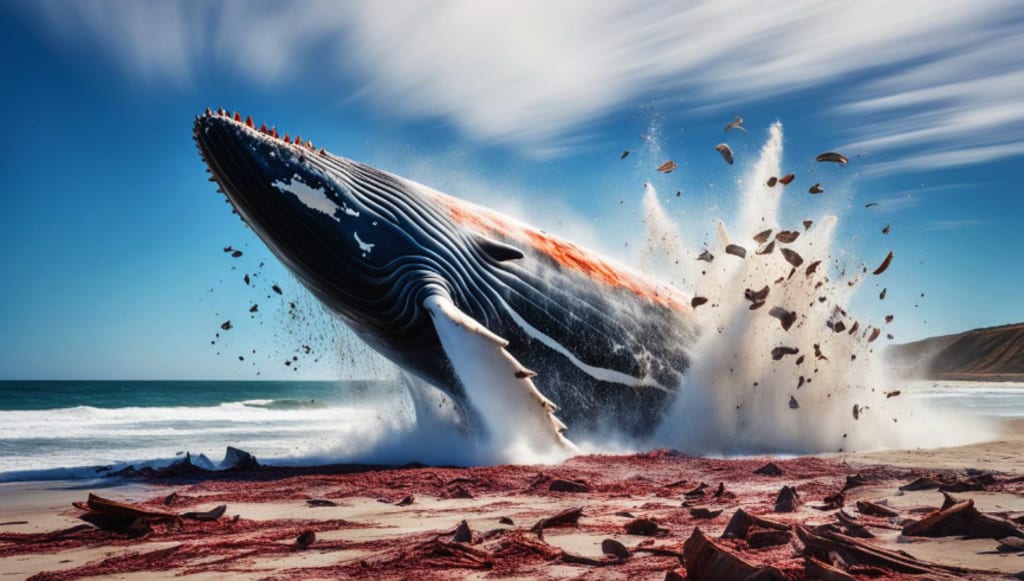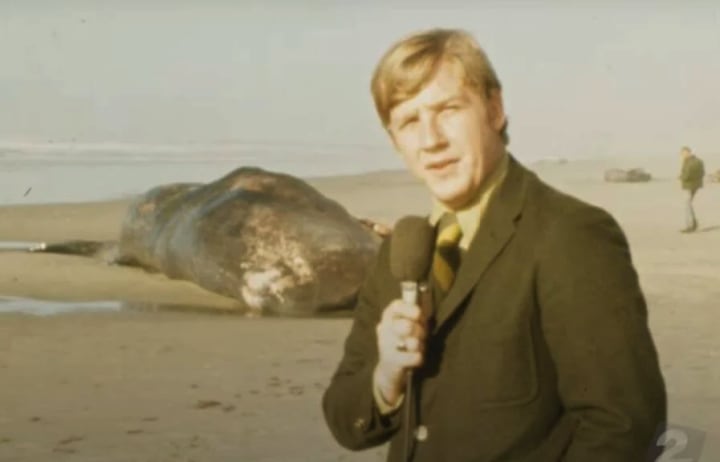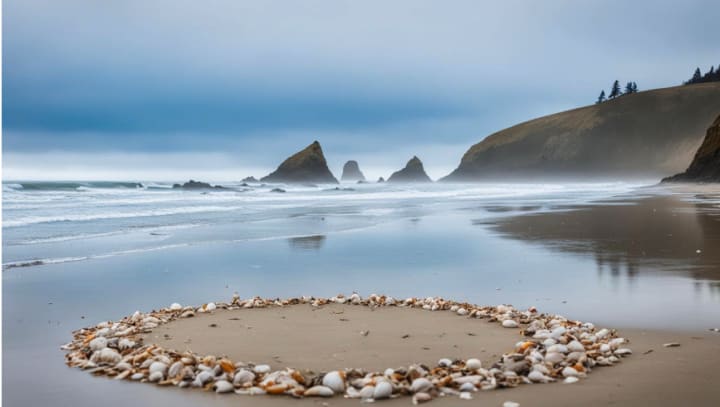When a Whale Exploded in Oregon
The Infamous 1970 Whale Carcass Explosion in Oregon

The Exploding Whale Incident: A Bizarre Tale from Oregon's Coast
On November 9, 1970, a massive whale washed up near Florence on Oregon's south coast. The Oregon State Highway Division, now known as the Oregon Department of Transportation, was tasked with handling the situation. Faced with a massive, decomposing carcass, officials decided to remove the whale using dynamite, a method chosen after consulting with U.S. Navy and munitions experts.
The Explosive Decision
George Thornton, an Assistant District Highway Engineer, made the pivotal decision to treat the 45-foot, 8-ton sperm whale carcass like a boulder and use dynamite to remove it. Thornton chose a charge of 450 kilograms of dynamite, following advice from munitions experts. The rationale was that the explosion would disintegrate the whale into small pieces that scavengers could then clean up. This unconventional approach was considered because the carcass was too large and heavy to move using traditional methods, and it posed a significant health hazard as it decomposed on the beach.
The Big Day: November 12, 1970
Three days later, a large crowd, including local reporters, gathered on the beach to witness the event. The anticipation was palpable. Larry Bacon, a reporter covering the event, described the scene vividly, stating, "The beach erupted in a 100-foot-high column of sand and whale." The spectacle had been widely publicized, and the public was eager to see the unusual method in action. People brought cameras, picnic lunches, and a sense of curiosity to see if the plan would work as intended.

Raining Blubber: The Aftermath
The half-ton of dynamite exploded, launching a 100-foot-high mix of sand and whale blubber into the sky. The explosion shocked everyone watching. Fragments of the whale shot everywhere, causing people to scream and duck for safety. Huge chunks of blubber flew overhead, with pieces landing as far away as a nearby town. One sizable chunk even smashed a car parked a quarter-mile away from the blast site. The explosion's force was far greater than anticipated, and instead of neatly breaking the whale into small, manageable pieces, it sent large, dangerous chunks flying in all directions.
Cleanup and Damage
Despite the dramatic explosion, the aftermath required significant clean-up. While nobody was injured by the explosion or its debris, workers had to gather and bury the scattered parts of the 45-foot-long whale. The explosion, which aimed to solve a problem, created new challenges instead. The remains of the whale, scattered far and wide, needed to be collected and disposed of properly. The clean-up operation took several days, involving numerous workers who had to painstakingly collect the remnants of the whale.
The Story Spreads
The bizarre nature of the event caught the public's imagination. In 1990, humorist Dave Barry wrote an article titled "Moby Yuck" for his column, bringing renewed attention to the story. The tale quickly spread online, with someone posting a short piece of the story, and the original KATU video finding its way onto various websites. The incident became a viral sensation, with the video widely shared and viewed. This unexpected resurgence in interest turned the event into a cultural touchstone, referenced in various media and remembered as one of the quirkiest moments in Oregon's history.

Global Incidents and Methods
Using explosives to dispose of whale carcasses is not unique to Oregon. Countries like Canada, South Africa, Iceland, Australia, Denmark, and the UK have employed similar methods, usually at sea. These instances highlight the challenges and dangers of dealing with whale remains. In one notable case in 1928, a group accidentally exploded a whale while attempting to preserve it, underscoring the risks involved. These methods, while effective in theory, often come with unforeseen consequences, emphasizing the need for careful planning and execution.
The Legacy of the Oregon Explosion
The 1970 Oregon case became famous, particularly with the widespread sharing of its video. In 2020, Florence chose to commemorate the event by naming a new park "Exploding Whale Memorial Park." The park features a plaque as a reminder of the unusual and memorable incident. The 50th anniversary of the explosion inspired KATU to share the story once more, presenting a 4K version of the original news report shot on 16mm film. This commemoration not only celebrates the unique history of the town but also serves as a reminder of the innovative, if not always successful, approaches humans take when faced with unusual problems.
Lessons Learned
The Oregon explosion serves as a cautionary tale about handling dead marine animals. It highlights the need for careful planning and consideration of potential outcomes. The event is a reminder of the unpredictable nature of such operations and the importance of exploring all options before taking drastic measures. The incident underscores the value of consulting with multiple experts and considering less dramatic, more practical solutions when dealing with large-scale environmental issues.
About the Creator
Richard Dillion Lewis
I'm Richard, a retired firefighter and visionary traveler. After living among the Eskimos in the Arctic of Alaska, I moved to the tropical paradise of Costa Rica. Life's been an incredible journey, and I'm excited to share my adventures
Enjoyed the story? Support the Creator.
Subscribe for free to receive all their stories in your feed. You could also pledge your support or give them a one-off tip, letting them know you appreciate their work.





Comments
There are no comments for this story
Be the first to respond and start the conversation.